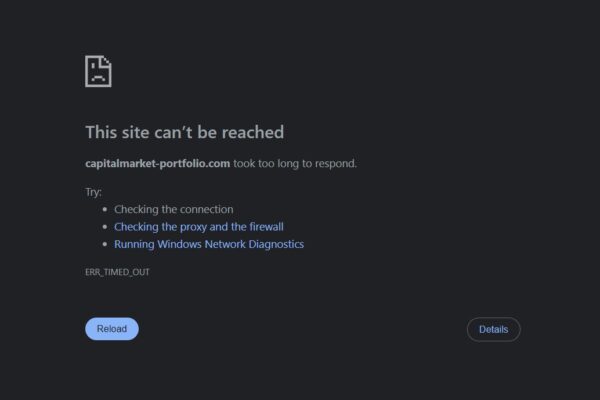iTrade.so Scam Review -Uncovering the Warning Signs
When you land on a slick-looking online trading platform that promises high returns and easy access to global markets, the temptation can be strong. But for the website at itrade.so, a growing body of evidence points toward a classic high-risk, potentially fraudulent operation rather than a legitimate brokerage. This article digs into the details, explores what we know and don’t know, and highlights the red flags you should be aware of.
First Impressions & Marketing
On first glance, iTrade presents itself as a full-service trading platform, offering access to forex, stocks, commodities, indices, and crypto. The website’s tone is modern and confident, promising opportunities that appeal to those looking to “get in early” or “take control of their financial future”. It looks like the kind of site many first-time investors might trust.
But the outward polish masks significant concerns.
Regulatory Status & Warnings
One of the most important checks when dealing with any investment platform is: Is it properly regulated?
-
The Canadian regulator for British Columbia’s securities market (British Columbia Securities Commission – BCSC) has issued a caution regarding iTrade / itrade.so. It explicitly states that iTrade “is not registered to trade in, or advise on, securities or derivatives in BC.”
-
The Quebec regulator (Autorité des marchés financiers – AMF) has also published a warning. On 14 March 2024 they listed iTrade, noted the domain itrade.so, and clearly stated the platform is not authorized to solicit investors in Québec.
-
A site that assesses website safety (ScamAdviser) gives itrade.so a very low trust score, highlighting: recent domain registration, hidden ownership identity, and “possible high risk financial services detected”.
Taken together, these regulatory signals strongly suggest that iTrade lacks legitimate regulatory oversight, which is a major red flag in the world of investing.
Company Information & Transparency Issues
A legitimate broker usually provides clear disclosure: company registration number, headquarters address, regulatory license(s), audited financials, public reviews, etc. iTrade fails heavily in this area.
-
Ownership/registrant details are masked via a privacy-service (WHOIS hidden).
-
The domain (itrade.so) appears to have been registered recently (e.g., September 2023) according to ScamAdviser.
-
There are claims of broad services (multiple asset classes, global clients) but no verifiable statements of which legal entity is operating the platform or which regulator governs it.
-
Independent reviews (for example, Liberty-Reviews website) call iTrade an “unregulated and unscrupulous broker” and specifically warn about its lack of transparency and inability to process withdrawals.
The combination of vague corporate identity, hidden ownership, and unverified claims is strongly consistent with scam behavior.
Promises & Marketing Tactics
Marketing for iTrade uses familiar tactics seen in many scam platforms:
-
Offering access to a variety of markets: forex, commodities, crypto, indices.
-
Implicit or explicit promises of high returns or “cutting-edge tools” especially geared toward attracting new investors.
-
Encouraging quick deposits and emphasizing the need to “act now” to secure access or special terms.
These features alone don’t guarantee fraud, but when combined with the lack of regulation and transparency, they become serious warning signs.
The Withdrawal / Execution Concern
One commonly cited reason platforms like iTrade are labeled scams is the inability of users to withdraw funds after depositing. According to the review on Liberty-Reviews:
“The iTrade company … does not withdraw money, which, in principle, was quite expected and logical.”
While there is not publicly documented data (in the sources I found) showing large numbers of officially published cases of withdrawal failure, the warning signals (regulator advisories, hidden ownership, unverified claims) strongly suggest that investors are at risk of losing access to their funds.
Structural & Operational Red Flags
-
No official license: Regulators in Canada (BC) and Québec specifically flag the platform.
-
Hidden ownership / opaque structure: The platform uses WHOIS privacy and gives no verifiable corporate information.
-
Recent domain registration: Suggests short lifespan; many scam operations move domains after being discovered.
-
Promising wide-ranging services: Offering forex, commodities, crypto, indices all in one platform without clarity of how they are delivered.
-
High-risk labeling: The website flagged as “possible high risk financial services” by ScamAdviser.
-
Aggressive marketing tactics: Promises of quick gains; targeting inexperienced investors.
-
Lack of published independent feedback: Few credible user reviews; those that exist are negative.
Pattern within the Broader Scam Landscape
iTrade appears to fit well within a documented pattern of fraudulent online trading platforms:
-
Launch a slick website, often mimicking legitimate brokers.
-
Make broad promises of high returns and easy access to many asset classes.
-
Use hidden or offshore structures to avoid regulation.
-
Generate fake dashboards / displays of profit to lure more deposits.
-
When funds are requested to be withdrawn or large deposits are made, excuses are given or withdrawals fail.
-
Eventually the domain disappears or changes name, and the operation moves on.
Regulators such as the Belgian Financial Services and Markets Authority (FSMA) have issued general warnings that many fraud-platforms operate this way.
Key Takeaways and Advice
Bottom line: Based on the evidence to date, iTrade (itrade.so) should be regarded as extremely high risk, with strong indicators of being a scam or fraudulent operation.
Some essential points:
-
It is not authorized or regulated by recognized financial authorities in Canada (BC/Québec) — at minimum, that means you have no protective oversight if something goes wrong.
-
The company structure is opaque, domain very new, ownership hidden. These are hallmark indicators of potential fraud.
-
The marketing promises and service claims align with known scam patterns.
-
There are published user complaints and independent reviews flagging the withdrawal inability issue.
If you are considering any platform like this, ask yourself:
-
Can I verify the regulator and license number?
-
Can I find credible independent user reviews?
-
Am I being pressured into making a deposit or persuaded heavily by an “account manager”?
-
Are withdrawal stories readily available?
-
Does the business transparency meet professional broker standards?
In the case of iTrade, the answers to these questions are overwhelmingly negative or unclear.
Final Thoughts
The world of online trading offers real opportunities—but it also offers elevated risk, especially when the platform lacks transparency, regulation, and clear accountability. iTrade (itrade.so) checks many of the boxes associated with fraudulent investment schemes.
It’s crucial to approach such platforms with caution. The fact that reputable regulators have issued formal warnings should alone serve as a strong deterrent. While it is impossible to prove with absolute certainty from public sources that the platform is committing fraud, the accumulation of warning signs is significant.
In short: treat iTrade as a platform to avoid, not a legitimate investment doorway.
Report iTrade.so Scam and Recover Your Funds
If you have lost money to iTrade.so, it’s important to take action immediately. Report the scam to Jayen-consulting.com, a trusted platform that assists victims in recovering their stolen funds. The sooner you act, the better your chances of reclaiming your money and holding these fraudsters accountable.
Scam brokers like iTrade.so continue to target unsuspecting investors. Stay informed, avoid unregulated platforms, and report scams to protect yourself and others from financial fraud.
Stay smart. Stay safe






